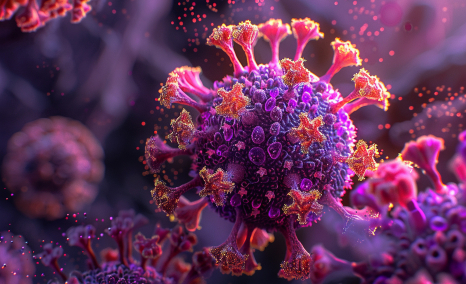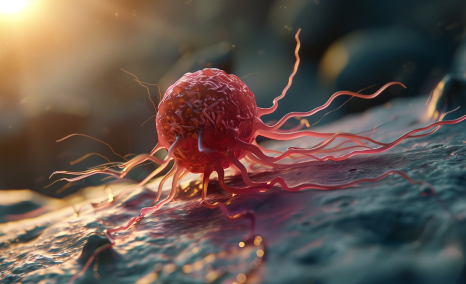First-in-human dose-expansion study of NBF-006, a novel investigational siRNA targeting GSTP, in patients with KRAS-mutated non-small cell lung cancer
Apr 10, 2024
Glutathione S‑transferase Pi (GSTP) has a role in detoxification and anti‑oxidative damage response. Additionally, GSTP has a chaperone function that regulates key oncogenic pathways such as the KRAS and JNK. Since redundant pathways could compensate for the inhibition of a single kinase, targeting multiple pathways may lead to more effective therapy. NBF-006 is a novel drug product comprised of GSTP siRNA encapsulated within a proprietary lipid nanoparticle. It is designed to deliver siRNA to localized and metastatic lung tumors. As per the results presented at the AACR 2024 conference, around Thirty-eight patients with NSCLC, with or without KRAS mutation underwent treatment at varying doses of NBF-006. The drug was well tolerated with no treatment-related grade 4-5 AEs, SAEs, or DLTs. Two grade 3 events were assessed as possibly related to study treatment, anemia, and bilateral pleural effusions (both at 0.6 mg/kg).
The most common NBF-006-related AEs were Grade 1 or 2 infusion-related reactions (IRRs) (18 %) and nausea (11 %). IRRs (n=8 in seven patients), occurred in the first cycle and were well-managed. One patient discontinued due to recurring IRR. Cytokine elevation was only noted in this patient. No clinically meaningful complement activation nor ADA response has been observed. Apart from that, two patients (1.2 and 1.6 mg/kg) experienced a durable PR, and 17 patients experienced SD. The disease control rate achieved was 19/38 (59%). Patient enrichment strategies were evaluated with interesting trends observed.

Conclusion
Downloads
Click Here To Get the Article in PDF
Recent Articles
- Atezolizumab: Investigating Immunotherapy in Head and Neck Squamous Cell Carcinomas (HNSCC) ̵...
- CTX130 – CAR T Cell Therapy Offers New Hope for Advanced Clear Cell Renal Cell Carcinoma: A...
- Safety and preliminary efficacy of AZD1390 + radiation therapy (RT) for glioblastoma (GBM)
- Inoculating Hope: The Landscape of Cancer Vaccination
- Advancements in Targeting KRASG12D: Preclinical Insights and Therapeutic Potential
NBF-006 shows long-term tolerability and promising efficacy in heavily treated pan-KRAS mutant NSCLC patients, warranting further clinical exploration alone or in combination with standard therapy.
Downloads
Article in PDF
Recent Articles
- Clinical activity of P-BCMA-ALLO1, a B-cell maturation antigen (BCMA) targeted allogeneic chimeri...
- A Closer Look at Nectin-4 Targeted Therapies: Preclinical Insights – AACR 2024
- Personalized vaccine TG4050 induces polyepitopic immune responses against private neoantigens in ...
- CTX130 – CAR T Cell Therapy Offers New Hope for Advanced Clear Cell Renal Cell Carcinoma: A...
- OBX-115 – TIL Cell Therapy Advancements for ICI-Resistant Advanced Melanoma: AACR 2024



